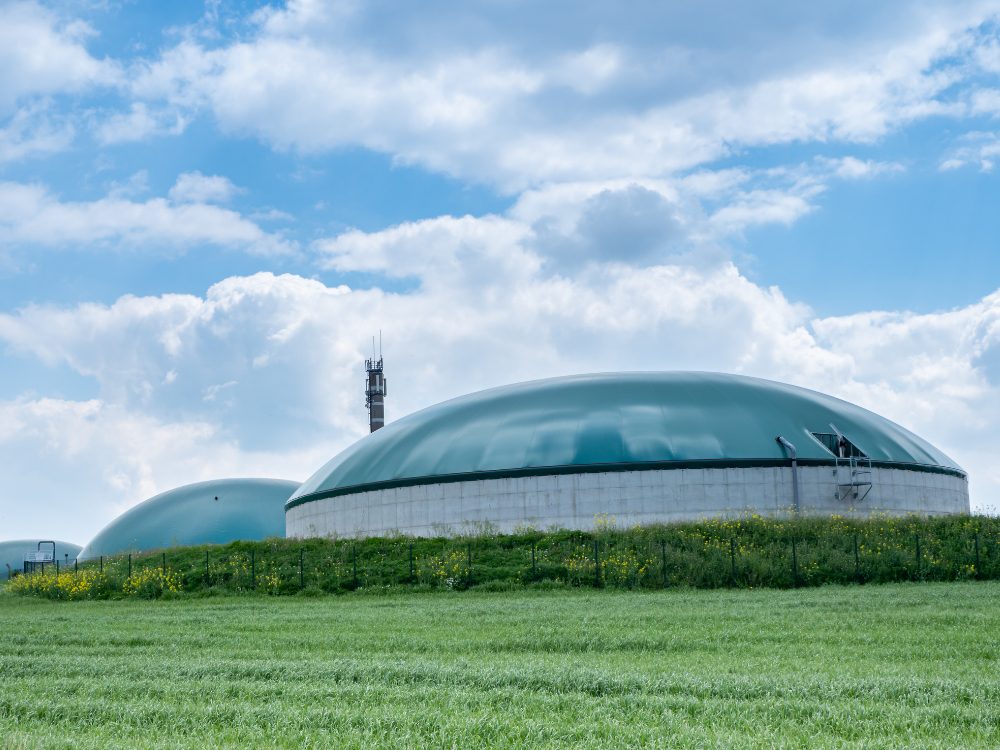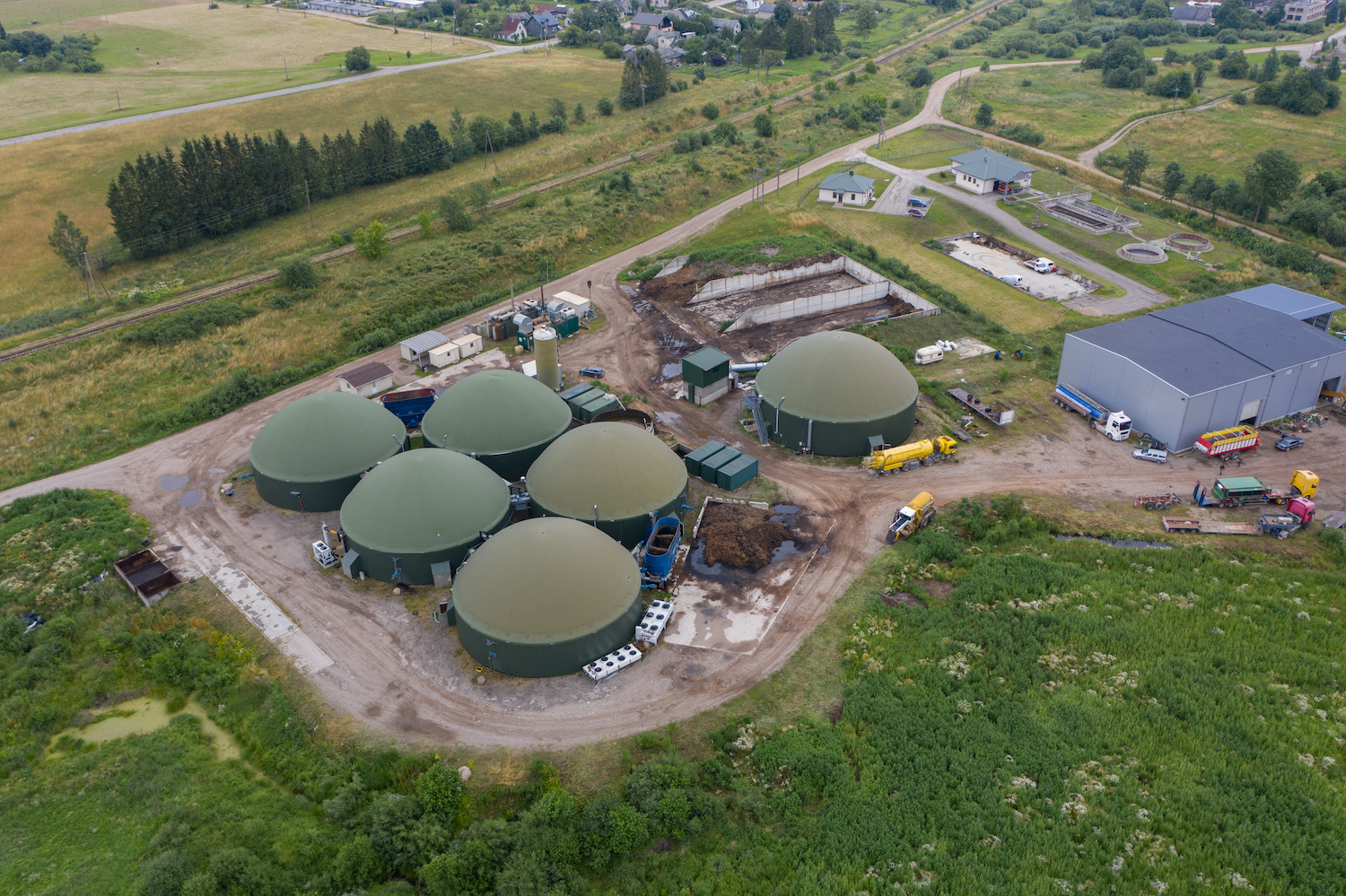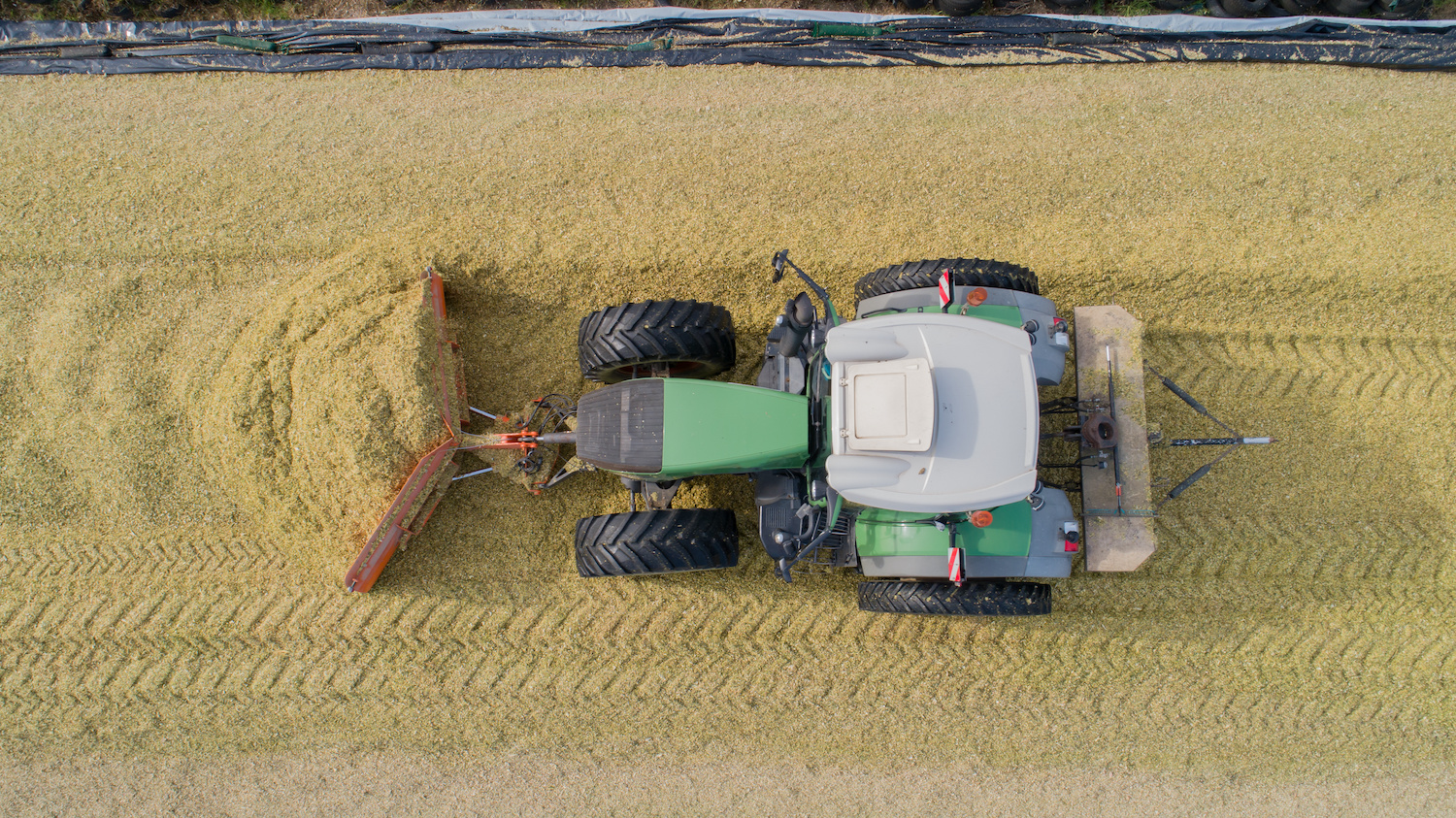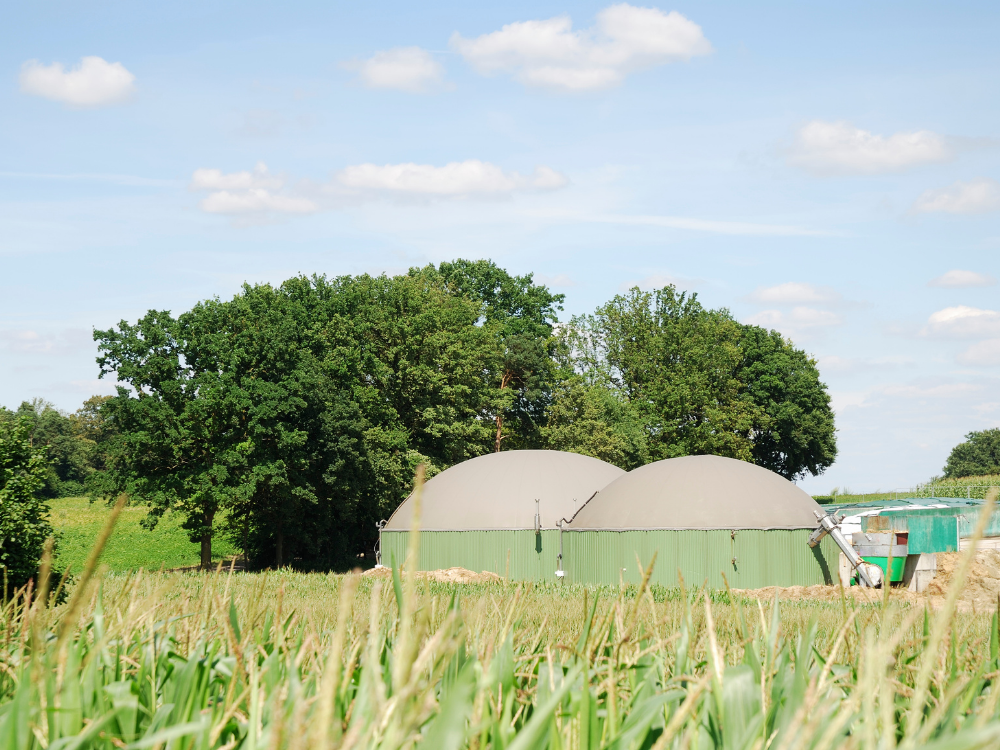Biomethane - Energy!
Biomethane - Information and answers to frequently asked questions
What you should know about biomethane:
Biomethane is a sensible alternative to fossil energy, and not just in terms of climate change:
Independent
Unlike solar or wind energy, biomethane production is not dependent on weather conditions and can be stored.
Reliable
In Germany alone, there are currently over 9,500 biogas plants. The steadily growing production of biomethane will make us less dependent on imported fossil energy.
Sustainable
Biomethane is produced from renewable raw materials or biomass (such as liquid manure, dung, residual and waste materials) and is thus a real alternative to fossil fuels

Contact us
You need a consultation?
Feel free to send us a message
What is biomethane?
Biomethane is a renewable gas produced by upgrading biogas. Biogas is produced by the anaerobic digestion of organic materials such as agricultural waste, biomass, sewage sludge, and organic residues. By removing impurities such as carbon dioxide, hydrogen, and sulfur compounds, the biogas is upgraded to biomethane. Biomethane consists mainly of methane and can be used as a high-quality fuel.

How is biomethane produced?
The production of biomethane takes place in several steps. First, organic materials are collected to serve as substrate for anaerobic digestion. These materials can include agricultural residues such as manure and slurry, energy crops such as corn or grass, food waste, or organic residues from industry and households. The substrate is fermented in an anaerobic environment (without oxygen) in biogas plants, producing biogas. The biogas is then upgraded to remove impurities and produce biomethane.

Is biomethane sustainable?

